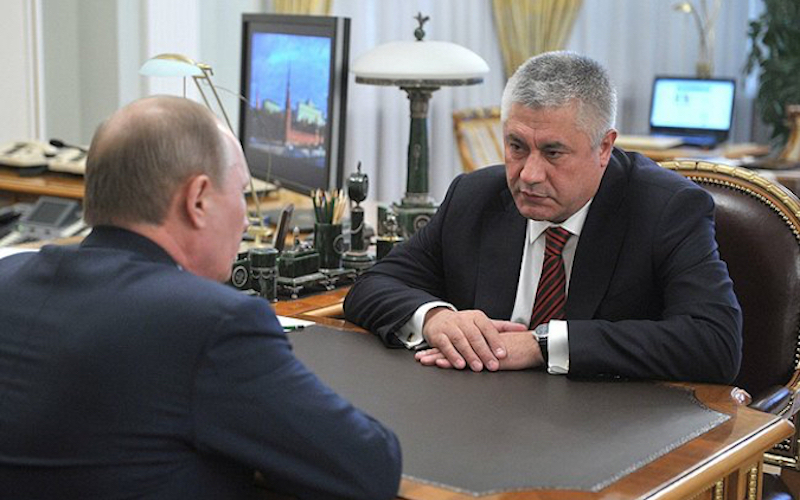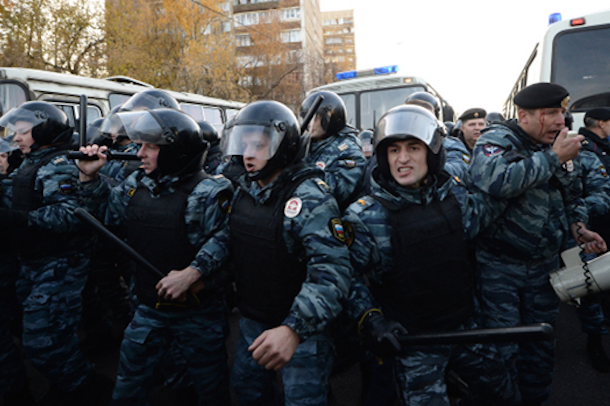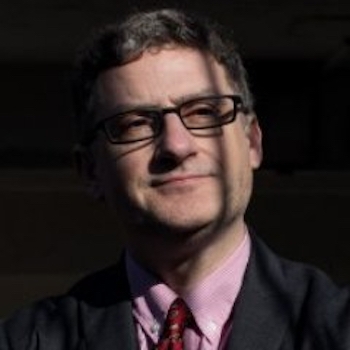
Kolokoltsev’s Populist Lurch
It’s sad to see a professional making like a populist, but presumably in a bid to fight back against the whispering campaign against him, and the efforts by hardliners to see Russia’s First Deputy Interior Minister Zolotov fast-tracked into his position, Interior Minister Vladimir Kolokoltsev has leapt on board the xenophobia bandwagon. Interviewed in RBK, he talked up the MVD’s successes in 2014, which was only to be expected, and then talked up the Interior Troops as a bulwark against efforts to implant evil foreign democracy, which was not. In his words: “We see the tragic consequences that bedevil the country in which the experiment is conducted to graft on ‘American-style democracy’…We see the collapse of their economies, a terrible social situation, the actual destruction of the state.”
Do I hear “Ukraine”? Of course no mention of the extent to which those terrible outcomes reflect not democratisation (and if “American-style democracy” is so bad, what about British- or German-) but the consequent active and armed destabilisation of said state by a malign and aggrieved next-door neighbour.

In any case, as far as Kolokoltsev is concerned, “this will never, in any scenario, happen in the Russian Federation.” Why is that? Well, his main answer seems to be not because the Russian people wouldn’t stand for it, but because the Interior Troops are ready for rapid deployment to deal with any situation. Lovely: no democratisation here, because we have men with guns and sticks to make sure that doesn’t happen.
I honestly have no idea whether or not Kolokoltsev has always held these beliefs. He has essentially stayed away from wider political discussions, in keeping with his reputation as a serious and committed career policeman. I have never assumed he was some kind of closet liberal (let’s face it: very few senior cops anywhere are), but he has shown that he understands the need to reconstitute the social contract between police and the policed and has done nothing to prioritize political policing over law enforcement (that tends to fall to the FSB and Investigations Committee).
These latest pronouncements are thus unusual and can only be understood as attempts to shore up his political flank and pitch himself as being a tough political enforcer. We’ll see not only if it works but whether it becomes more than just rhetoric, in which case the police reform programme is likely to become increasingly threadbare.
This article was originally posted in In Moscow’s Shadows.

